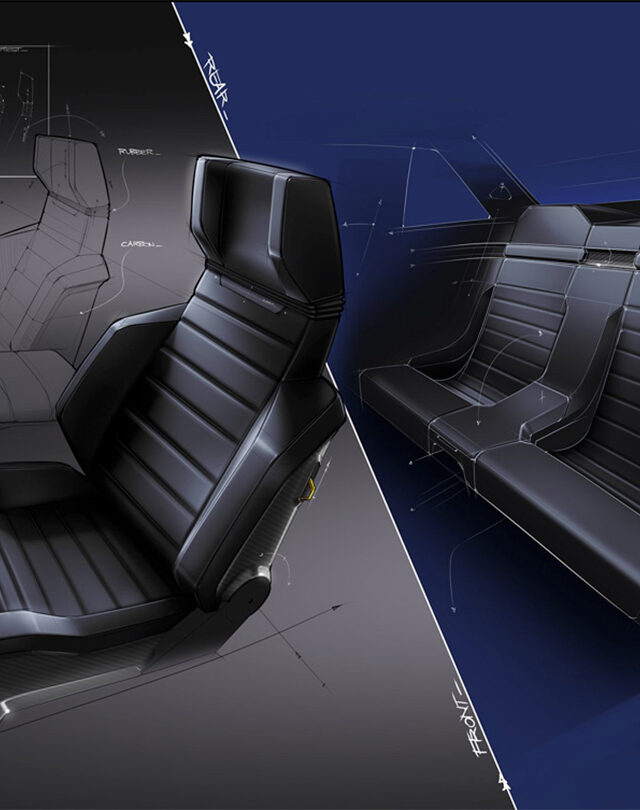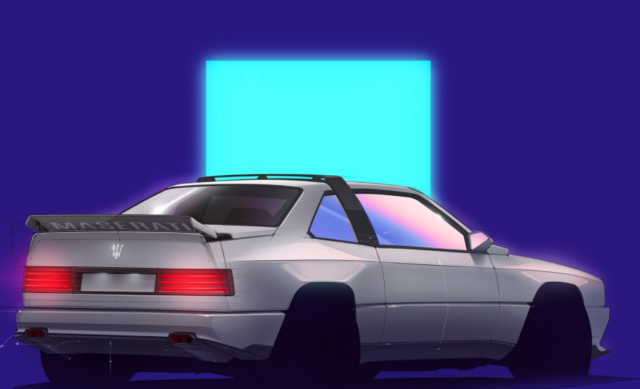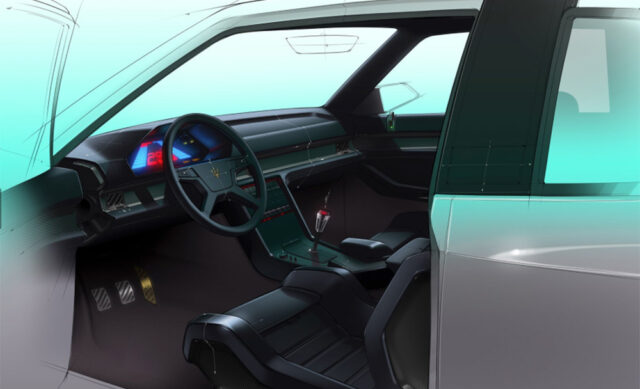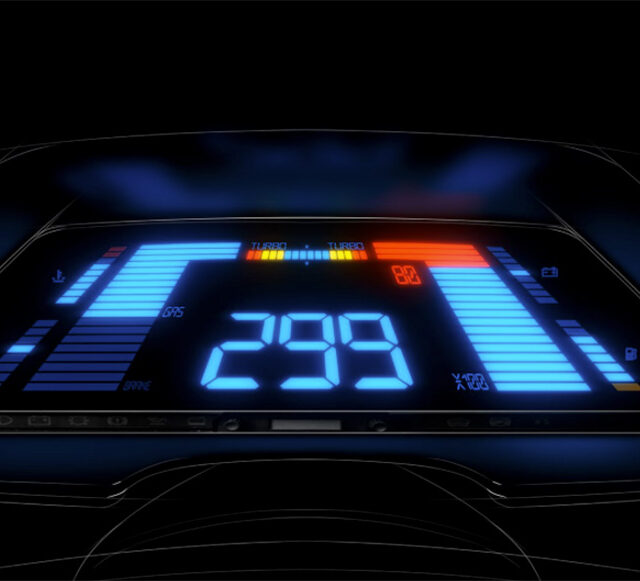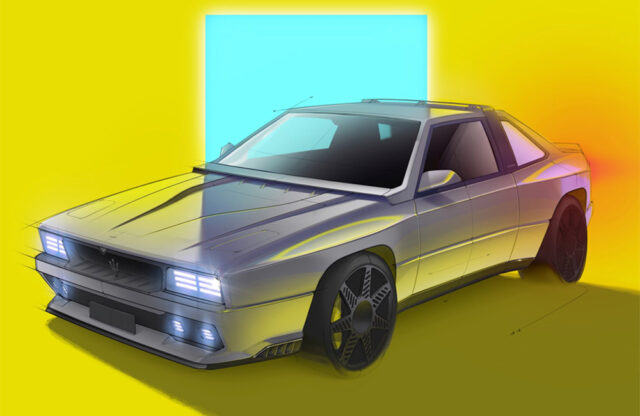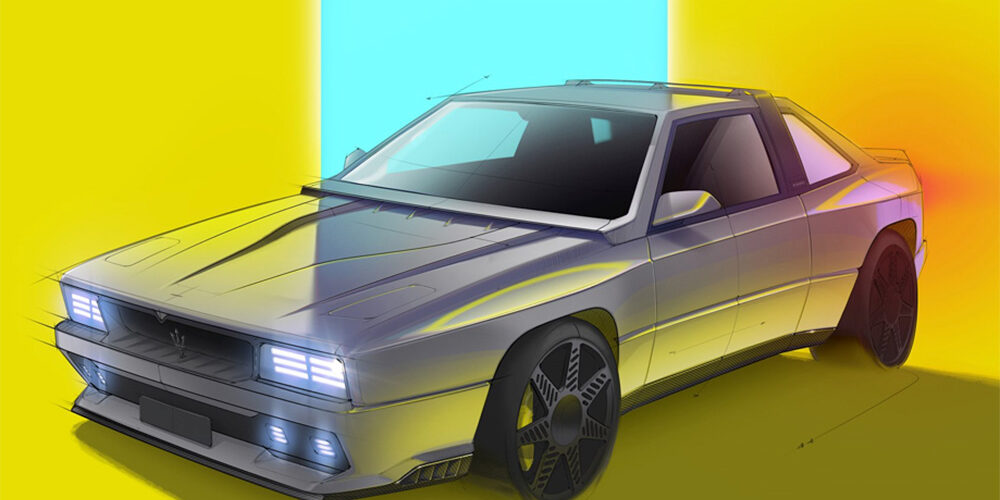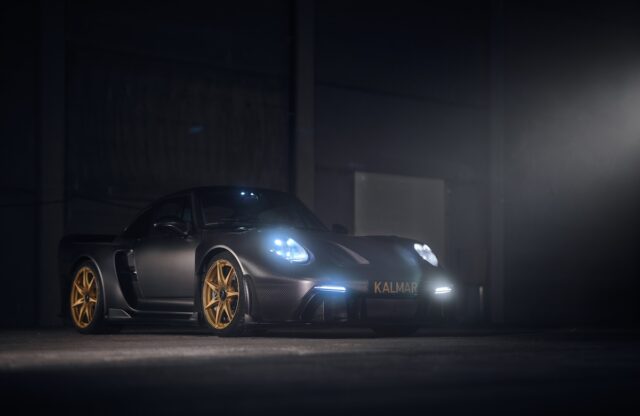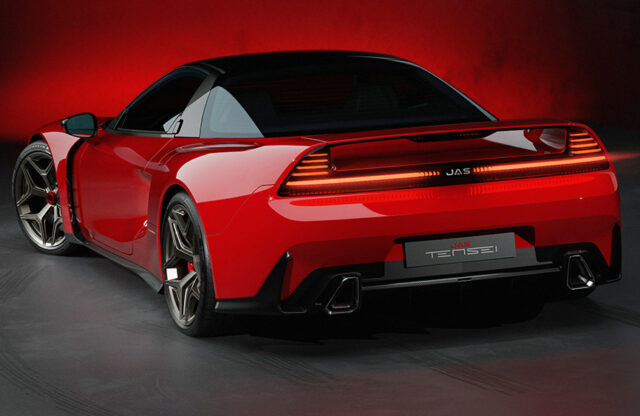A Maserati Ghibli II that is believed to have been the donor car behind the 2020 Project Rekall restomod proposal, has been found for sale on a Facebook group.
The car was put together by Garage Italia, the company founded by Lapo Elkann, the great-grandson of Fiat founder Giovanni Agnelli – and board member of Ferrari and head of promotion for the Fiat Group.
Project Rekall was revealed on Maserati’s now-defunct Fuoriserie Instagram account as a modern take on the Shamal (pictured above). The car used key elements of the Shamal’s look – the wide box ‘arches, the windscreen spoiler, the B-pillar and more – while the interior used a similar architecture with digital instruments and bucket seats. The Fuoriserie account encouraged social media users to “join the resistance, make the hard choices together and we’ll see it through to the end”.
There were no details on whether the project would use an original Shamal and its 326bhp 3.2-litre twin-turbocharged V8, but look closely and the roofline more closely resembles that of the contemporary Ghibli II, which was powered by either a 2.0- or 2.8-litre twin-turbocharged V6 with around 280-330bhp, although the project did hint at a manual gearbox.
However, after a massive response to the social media announcement, much of it positive, few recall Project Rekall today… until the donor turned up. But first, how did the project come about in the first place?
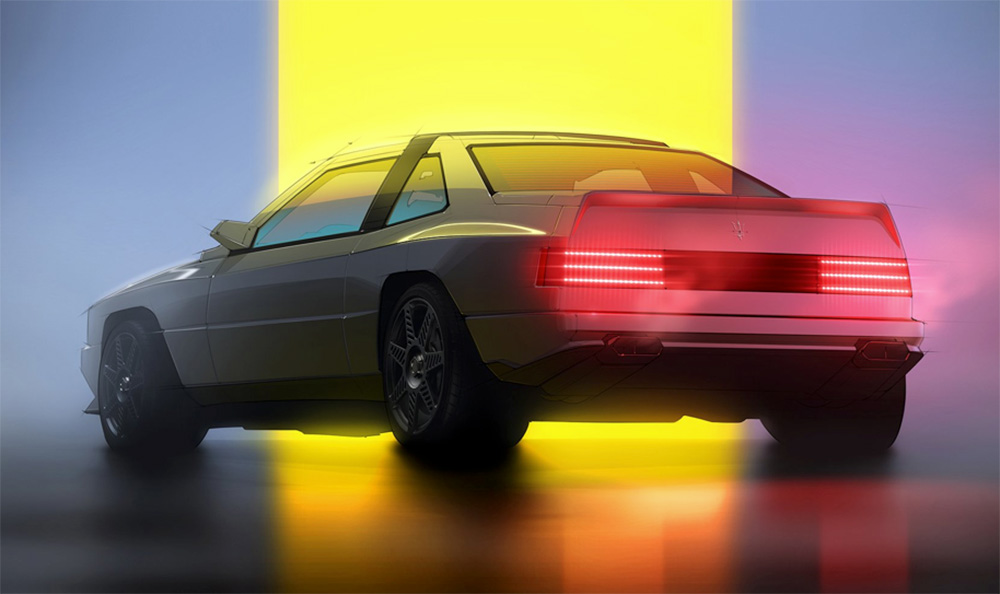
Carlo Borromeo, who designed the Delta Futurista for Automobili Amos, the Porsche 928-based Nardone and the Lamborghini Diablo-based Eccentrica, was the creative director at Garage Italia at the time. He currently heads up design consultancy BorromedeSilva, and he remembers the project well.
“We were doing a lot of consulting work for Maserati at the time, and the CEO, Davide Grasso, wanted us to set up the brand’s version of the Tailor Made programme, Fuoriserie,” he recalls.
“We created an Instagram channel, which was about trying a different approach to communicating a niche side of what goes on in OEMs. It was all about the aesthetic side of cars, not a performance or usability approach – it wasn’t commercial. It was talking about colour, aesthetics and the cultural meaningfulness of cars.”
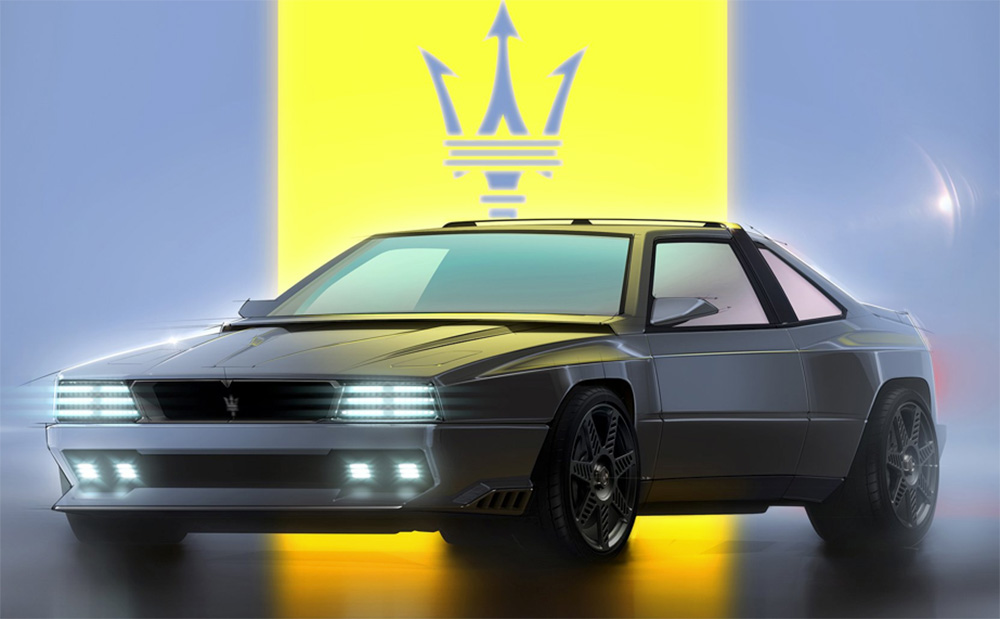
Within that programme, Garage Italia thought it would be fun to try a different approach, one that Carlo had seen work to great effect on the Automobili Amos take on the Lancia Delta Integrale: “We also thought it would be fun to basically do the project out in the open – rather than doing a project and then unveiling it as you’d normally do – and to involve the community in every step of the way. And since we knew restomods, we thought we’d try that.”
This approach came as a surprise to everyone – not least Maserati itself. “Project Rekall went on the Instagram channel without getting all the necessary approvals – and it blew up online,” Carlo chuckles. “We did have a couple of clarification phone calls from the PR department, which was great – it meant that we were doing our job. But they were happy about it in the end.”
Despite Carlo saying the project was a purely creative endeavour, there were hopes that it would reach production. “It went quite far – we had the donor car, we had a full 3D scan of the body and we did a photoshoot; the idea was to build a prototype and get the orders based on that, but the project was abandoned in the feasibility stage,” Carlo muses. “At some point, Maserati’s priorities shifted and it cut all the projects that were not deemed to be essential – and Rekall was cut.”
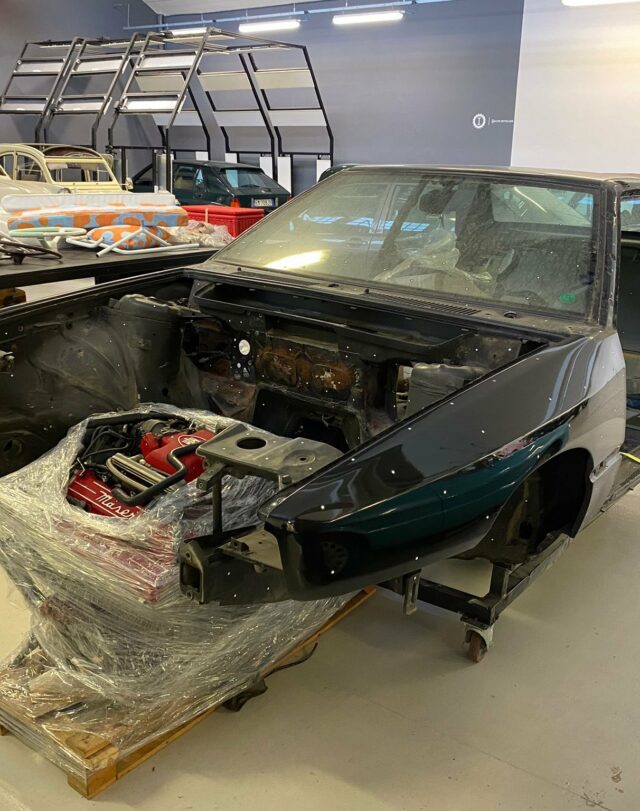
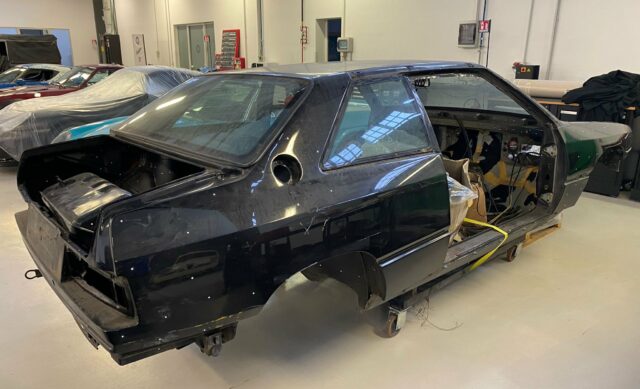
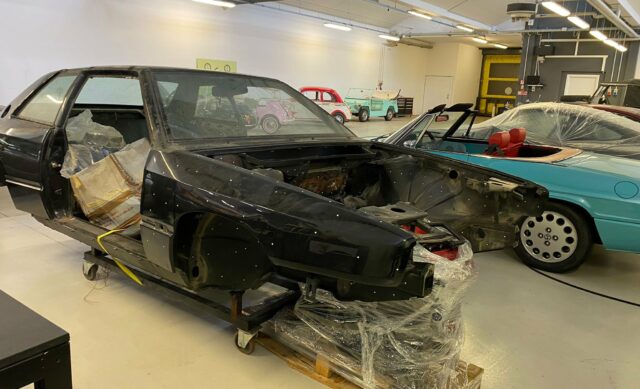
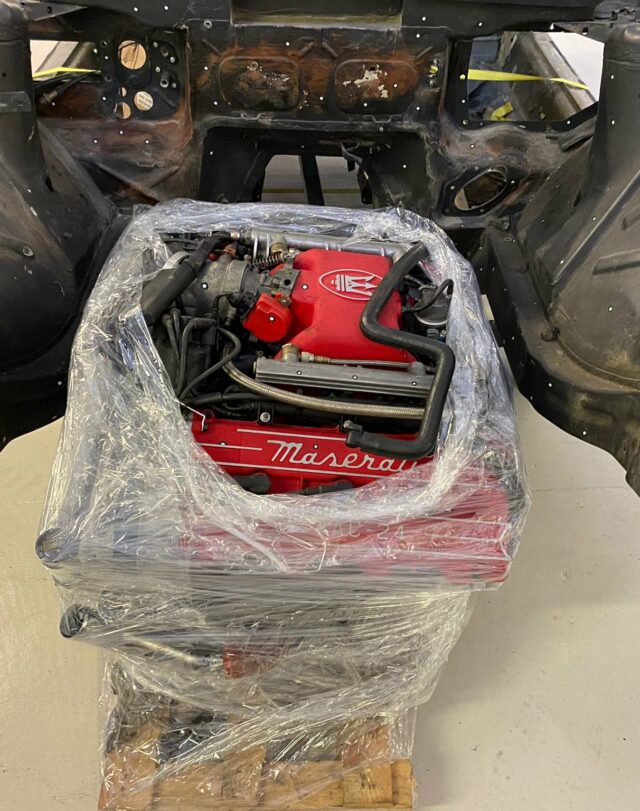
That would have been it, but a post on the Maserati Biturbo Italia Facebook page has found the donor car (pictured above), an Italian-market 2.0-litre 1993 Ghibli II, which had been acquired by Garage Italia in 2022.
The current owner, who purchased the car from Garage Italia in 2024, says that the car was perfect working order prior to it being disassembled for 3D scanning. However, it was never reassembled before being sold to the current owner, who is now parting with the entire car in a still-disassembled state with a sale price of €20,000. It’s based in Milan.
Looking back, Carlo sees Project Rekall as the one that got away. “It really hurts my soul that we were not able to make it,” he sighs. “It’s one of the projects I really like out of all the ones we tried. I still think it would make sense for Maserati to do it, because compared to the cost of creating a brand-new car, it’s nothing. Now the company is struggling, this may be able to point it in another direction…”
